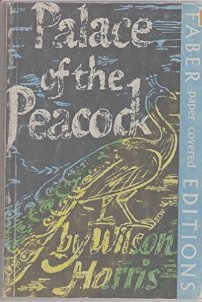What do you think?
Rate this book


152 pages, Paperback
First published January 1, 1960
We stood on the frontiers of the known world, and on the selfsame threshold of the unknown.
A dog rose and stood over me. A horse it was in the uncertain grey light, half-wolf, half-donkey, monstrous, disconsolate; neighing and barking in one breath, its terrible half-hooves raised over me to trample its premature rider. I grew conscious of its closeness as a shadow and as death. I made a frightful gesture to mount, and it shrank a little into half-woman, half-log greying into the dawn. Its teeth shone like a misty rag, and I raised my hand to cajole and stroke its ageing, soulful face. I sat bolt upright in my hammock, shouting aloud that the devil himself must fondle and mount this muse of hell and this hag, sinking back instantly, a dead man in his bed come to an involuntary climax. The grey wet dream of dawn had restored to me Mariella’s terrible stripes and anguish of soul. The vaguest fire and warmth came like a bullet, flooding me, over aeons of time it seemed, with penitence and sorrow.
It was the seventh day from Mariella. And the creation of the windows of the universe was finished.
"their living names matched the names of a famous dead crew that had sunk in the rapids and been drowned to a man, leaving their names inscribed on Sorrow Hill which stood at the foot of the falls. But this in no way interfered with their lifelike appearance and spirit and energy" (p.26).At scarcely 100 pages, this